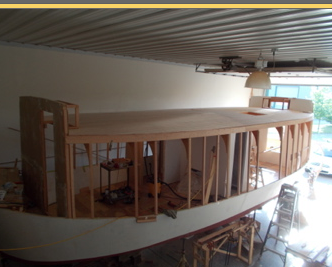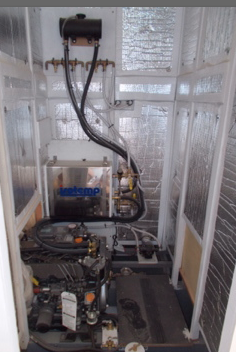I was down at the marina for the last few days.I decided to take a .................................But it would seem to me every skipper should know something about basic things like fuel tanks/manifolds etc.When our day comes for a larger vessel. Who is going too show me what to do? I don't expect many responses to this post.But it has been bothering me.Just something to ponder.
Sent from my Galaxy SIII using speech to text.so some words may not be perfect.but it's easier.
Well...the best I can do is the classic answer.... depends.
In all walks of life we learn the ropes from someone.
The time proven method of learning is "hear it, read it, question it, hear some more, read some more, get tested on it, go out and do it then review what has been learned. While easy for all my military training...kinda hard when part time learning about your own boat. And finding the "teacher" is also pretty difficult.
Finding someone who actually knows enough about all your systems yet is real enough to stop and say.."I don't know but I'll find out" is a rare quality. Most boaters I know just keep talking and bluff their way through some explanation that is derived from bit and pieces of info they sorta remember from a bunch of sources whether those sources were even remotely correct.
So you have a couple choices...try and find a person or several people who have amassed the info from working on boats for a long time that also will willingly share their time with you....or for the more expensive pieces of gear on your boat...hire professionals with some form of factory training to come and explain the system to you. Expensive...but often worth the money for systems where operator or maintenance error can be really expensive.
You are going to be in the same shoes for awhile that many delivery captains are in many days of the year. You take a job...show up to a boat...with a little time and basic understanding of boat systems...start'em up, and drive the boat for hundred's if not thousands of miles. The trick is to know when something isn't right and be able to shut it down and somehow proceed on. Some of us try and fix the system, some call the pro's for even a dripping faucet...we are all a little the same and yet all a little different....that's true of boat owners too.
So the question is...especially as boats get bigger...just how many fields of expertise are you willing to learn (that means get the explaination... then research the doodoo out of it to make sure your instructor wasn't full of doodoo....)?
There are sources available....the local assistance towing captain may help some if you trust him/her (I'm constantly in that situation), the "old timers over a beer or two(most of those you REALLY have to sort through the BS), some great mechanics/techs that have plenty of work will often throw a bone here or there because they know it's good for business....
But all in all...good things usually don't come cheap or free (forever)...so realy good advice is going to take a lot of effort on your part because just asking anyone can actually be worse than you just plodding through all the systems yourself until you feel confident in asking the right questions to the right people.







